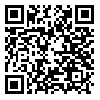BibTeX | RIS | EndNote | Medlars | ProCite | Reference Manager | RefWorks
Send citation to:
URL: http://jdisabilstud.org/article-1-1996-en.html

 , Mozhgan Akbarzade2
, Mozhgan Akbarzade2 
 , Masomeh Karimiyan3
, Masomeh Karimiyan3 
 , Mahdi Panahi4
, Mahdi Panahi4 
 , Mahnaz Jedi5
, Mahnaz Jedi5 
 , Javad Seidjafari *6
, Javad Seidjafari *6 

2- MS in Clinical Psychology, Faculty of Education Sciences and Psychology, Azad University of Tonekabon, Tonekabon, Iran
3- MS in Clinical Psychology, Faculty of Education Sciences and Psychology, Azad University of Rodehen, Tehran, Iran
4- MS in Rehabilitation, Faculty of Rehabilitation, University of Social Welfare and Rehabilitation Sciences, Tehran, Iran
5- MS in Clinical Psychology, Faculty of Education Sciences and Psychology, Azad University of Karaj, Karaj, Iran
6- PhD Student in Psychology, Faculty of Education Sciences and Psychology, Allameh Tabataba'i University, Tehran, Iran
Abstract
Background & Objectives: Diabetes and its complications and treatment techniques are among the most fundamental issues facing medical and psychological knowledge today. In patients with type 2 diabetes, more than 95% of the treatment process is performed by the patient, and the treatment team has little control over the patient between visits, which requires more attention to promoting self–care activities. Designing and evaluating educational and therapeutic programs based on providing information, motivating, and teaching behavioral skills in health–promoting self–care behaviors will increase patients' adherence to self–care behaviors and create a sense of recovery and satisfaction with disease control. Among these therapies is compassionate therapy, which has attracted the attention of new therapists, even for certain diseases. This study aimed to investigate the effectiveness of compassion–focused therapy on the self–care of people with type 2 diabetes.
Methods: The research method was quasi–experimental with a pretest–posttest design and a control group. The statistical population in this study consisted of all patients with type 2 diabetes referred to the Ravan Yar Counseling Center in Tehran City, Iran, in 2019. The sample size of the present study included 30 people. They were randomly assigned to the experimental and control groups (15 in each) on the inclusion and exclusion criteria. The inclusion criteria were as follows: voluntary admission to the study, non–use of psychiatric medication, a score below 50 in the self–care questionnaire, and at least 6 months have elapsed since the illness. The exclusion criteria were as follows: participants' reluctance to continue treatment and more than two absences from treatment sessions. The research instruments included Gilbert's Compassionate Therapy Program (2009) and the Summary of Diabetes Self–Care Activities Questionnaire (Toobert and Glasgow, 1994). Data analysis was done using univariate analysis of covariance, independent t test, and Chi–square test using SPSS version 22 software at a significance level 0.05.
Results: Based on the results, the mean self–care scores in the experimental group before and after the test were 24.58 and 26.42, respectively. Also, the average self–care scores in the control group before and after the test were 25.58 and 25.27, respectively. The following results show that the mean self–care scores increased in the posttest of the experimental group and decreased slightly in the posttest of the control group. The results of univariate analysis of covariance showed that after adjusting the self–care pretest scores, in the posttest, the scores of the experimental group were significantly higher than the control group (p=0.005).
Conclusion: Based on the results, compassion–focused therapy increases self–care in people with type 2 diabetes.
| Rights and permissions | |
 |
This work is licensed under a Creative Commons Attribution-NonCommercial 4.0 International License. |

